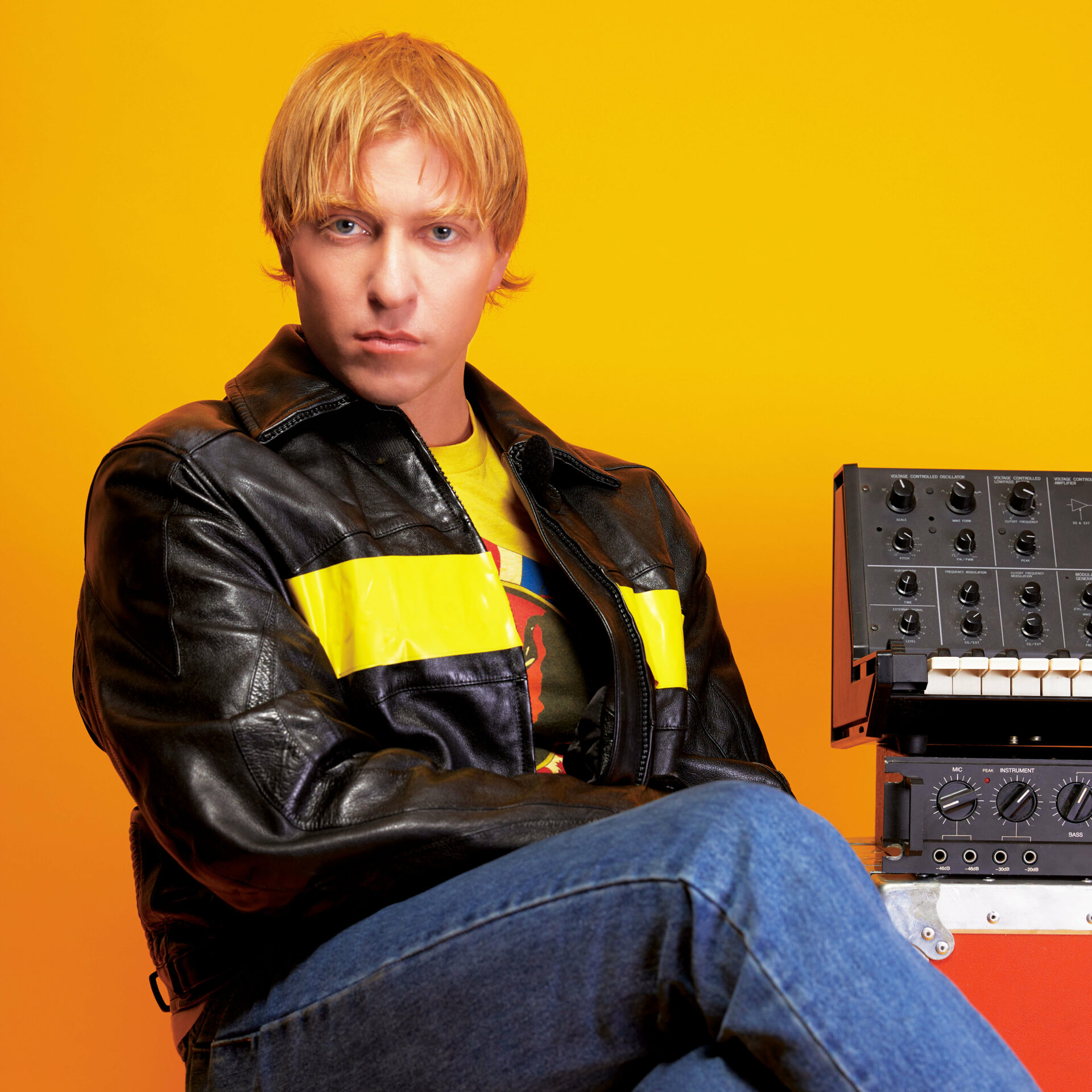By Ben Boddez
Jasamine White-Gluz’s love of creepy crawlies inspires a project reflecting the many sounds of nature through a shoegaze lens.
The notion of self-compassion, an idea introduced to him by his therapist during their earliest session, seemed a bit novel and even foreign to him. “Just slow down and pay attention to how you’re feeling,” his therapist suggested. “Give yourself a break and allow yourself to be less busy.” It was a simple concept, yet one that felt initially elusive to him.
In the beginning, Pierce stumbled while attempting to navigate this uncharted territory of self-compassion. He describes the early stages of this process as ‘clumsy,’ a struggle to truly understand what it meant to be gentle with oneself. But with each passing day, he persisted in his practice, nurturing the seed of gentleness. “As I began to allow myself to bask in that sweetness, different parts of myself that I had never seen before started emerging,” he says. “In doing that, I started understanding more. It’s almost like I was seeing this portrait of myself appearing before my eyes, finally enough to the point where I could start loving those parts of myself.”

Jonny’s artistic journey is, in many ways, an ongoing exploration of his past. During the pandemic, Pierce found himself in near isolation in his cabin in upstate New York for over a year. During this seclusion, he took a child psychology course to better understand what happened to him, particularly during his birth, which unearthed poignant memories. “When I was born, I was rushed away and I missed out on skin-on-skin contact and all of these deeply formative moments,” he explained. “My mother was actually one of the rare cases where she felt really violated in something that happened during the birth involving one of the doctors. And she just shut down emotionally and detached from me.”


This resulted in a difficult upbringing, where he bore the brunt of family discord. “I grew up in a space where I wasn’t loved and where I was actually the punching bag in the family. It was a really hard way to grow up and I still see the effects of it in my life every day,” he says.
This pandemic-infused pause and intellectual nurture also marked a significant shift in Pierce’s approach to creating music. Previously, he has adhered to a regimented and almost relentless process, aiming for efficiency and productivity. But with this alone time came realization, and Pierce took a step back to listen to his body. “There was this harsh aspect to how I made music. I made a decision that I would only record when my whole body was telling me it was time to do it,” he says. “When I wasn’t recording, I was just going to try to exist in this sweet and gentle space. So over the course of the last three years, I’d worked on an album, but not knowing that it was an album.”
The collection of songs emerged sporadically, and when management asked for new music to consider for an album, Pierce initially hesitated, believing the songs were too disparate and conflicting. “There’s joyful songs, but there’s songs about deep pain. Then there’s a song where I’m speaking as a mother to the younger version of myself. Then there’s a song about sexual abuse. There’s a song essentially about suicide. There’s so much and it all conflicts and it doesn’t work,” he says.
However, upon revisiting the collection, Pierce saw a beautiful album emerge, reflecting on the complexity of human existence. The songs explored the journey of a wounded soul seeking healing, understanding, and self-compassion. The album became a testament to the power of introspection and profound transformation that could emerge from embracing one’s past and nurturing the gentleness within. “It’s a reflection, almost like looking in a mirror of who I am. And who I am is just deeply human,” he says. “And what is being human? It is to be full of contradictions. It is to be hopeful one day and hopeless the next. And to be really angry and then to be really soft and sweet. This whole time, the love that I infused into my experience up here at the cabin was actually guiding this album.”

This journey drips into the album cover, a naked self-portrait, taken in his father’s office in Pierce’s childhood home a decade ago. This act was more than just a photograph; it was a symbolic reclamation of spaces that once left him feeling powerless. The cover serves as a visual representation of the album’s central themes: hope and hopelessness, safety and vulnerability. “I returned to the scene of the crime where the monsters live in the most vulnerable of ways. There was something beautiful and powerful in doing that, and there was something dark and destructive in doing that as well,” he explains. “In a way, it’s how I described the album. The album is at odds with itself. It can be very layered and sometimes confusing and sometimes it makes perfect sense. Sometimes it feels triumphant and other times it’s devastating and borderline hopeless.”
As Pierce shares the story behind the album cover, he acknowledges that his view of the images has shifted. He considers the possibility that it’s more complex than just a reclamation of power, wondering whether there might be a deeper layer to explore. “I’d love to just say forever that I was reclaiming my power in those spaces, but I am actually starting to wonder if it was more complex than that. And of course it is, right? I’m starting to understand more layers,” he says. “It’s interesting to think that of all places to do a photoshoot, that I would go back to the place of my abuser and make myself incredibly vulnerable in that space.”
As Pierce’s self-discovery journey is still on-going, there was a curiosity to know where he stands with his evolving understanding of love. “I still have these big question marks, like what is love actually? And does love feel different person-to-person because we’re not all the same? It’s still a big question for me. But I can say when I feel the most love is when I feel the most safe,” he shared.
And for Pierce, safety and security were relatively newfound experiences in his life. “Two years ago I took a significant step by becoming legally part of a family I had known for two decades,” he shares about a decision that brought a profound sense of belonging and stability into his life. “It was an experience that shifted something within me, allowing me to let my guard down and embrace my true self. And that’s my current definition of what love is.”
As Pierce continues to evolve and redefine love through his experiences, Jonny becomes more than an album; it’s a testament to the power of healing, self-compassion, and the never-ending journey of discovering what it truly means to be and feel loved.
By Ben Boddez
Jasamine White-Gluz’s love of creepy crawlies inspires a project reflecting the many sounds of nature through a shoegaze lens.
By Cam Delisle
The Calgary-born pop powerhouse brought her high-voltage Miss Possessive Tour to Rogers Arena for two consecutive sold-out shows.
By Hannah Harlacher
The Montreal songwriter on breaking up with the industry, choosing process over product, and building a creative life on her own terms.